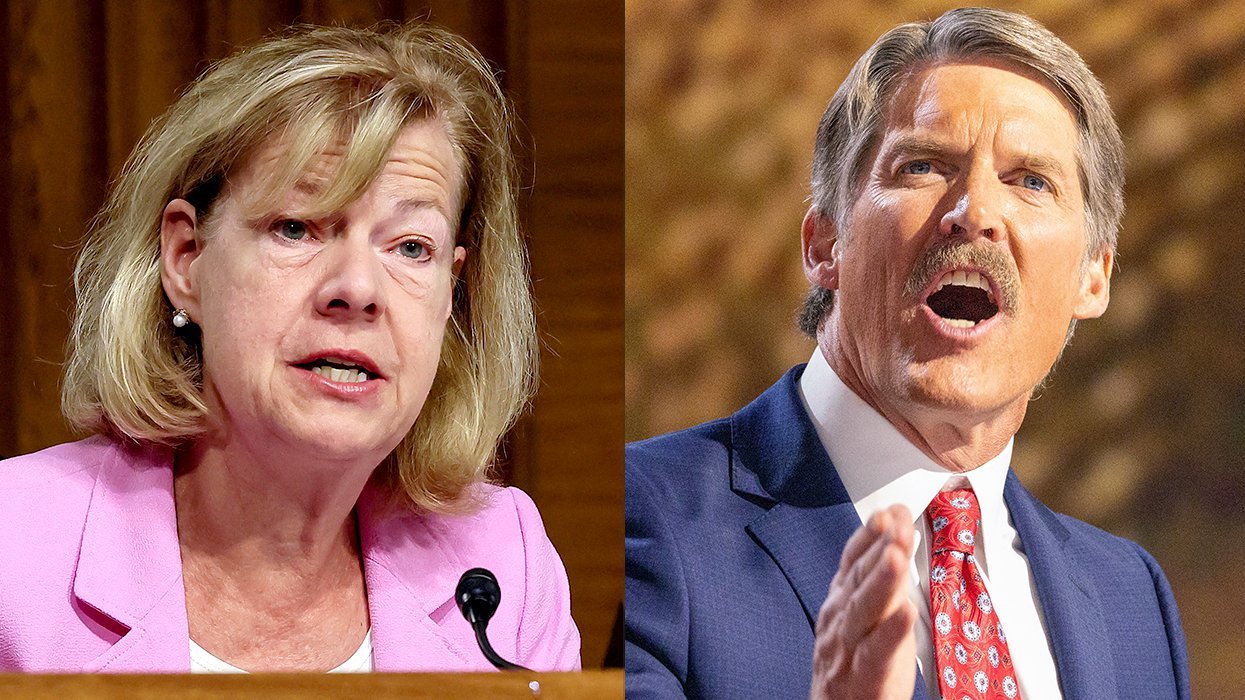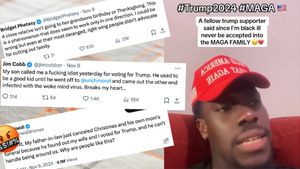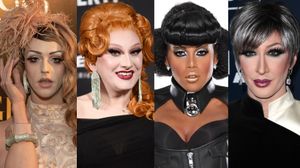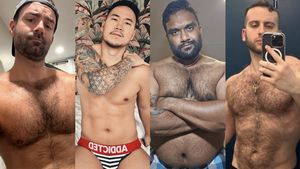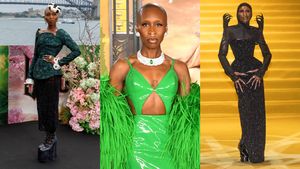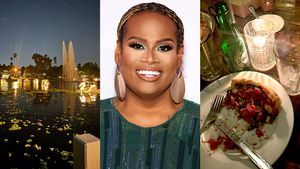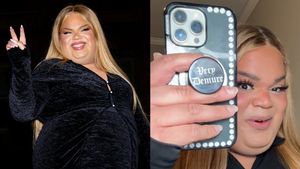When the Persuaders sang "there's a thin line between love and hate" in the 1971 pop classic of the same name, they were really onto something. There is, apparently, also a thin line between fetishism and outright racism, being eroticized for being exotic and being stigmatized for the same reason.
Aside from the loss of anonymity, my biggest frustration with being a gay black man from the U.S. living in South America, Australia, and Southeast Asia -- all places where black is a rarity, not just a minority -- was that from the moment many people saw me, they dragged out those ancient stereotypes about black men, sizing me up the way I assumed they did all the others who seldom crossed their paths. Everyone wanted to know one thing: "Is it true what they say about black men?"
I heard that question again and again, on three continents over seven years, coming from countless people, male and female, who had seen few black men in real life but assumed they already knew the answer.
Sex for the first time with anyone began to feel like an audition. Size mattered more than ever when you were black in Bangkok, Melbourne, and Buenos Aires (especially Buenos Aires!), all cities that I called home at various points after I left New York City in 2006. Either you fulfilled the fantasy about the big black man (the one immortalized and objectified in Robert Mapplethorpe's 1980 black-and-white photo "Man in a Polyester Suit"), or you probably wouldn't get a call back. It was such a deflating process that I frequently found myself second-guessing my sex appeal. Did I measure up?
There was a scene in the second episode of the new HBO series Looking in which Patrick's friends told him that the Mexican-American he was about to go out with probably would be uncut, piquing Patrick's curiosity and prompting him to research it online. That night, when Patrick got Richie into bed, he beelined to the zipper on Richie's trousers. He had to know. That single-mindedness, the look on Patrick's face, which could have been interpreted as either relief or disappointment, Richie's frustration over having become no longer a multidimensional man but merely his penis, were all too painfully familiar.
For me, dates began to feel like an audition for a porn movie where the director asks you to drop your trousers to see if you're big enough for the job. Once I was familiar with the lay of the gay land in Buenos Aires, where the big black myth was most prominent, aware of what men saw in me and what they expected to see attached to me, I became wary of practically every suitor, just waiting for that dreaded question: "Is it true what they say about black men?"
Still, I sometimes had a hard time saying no (not just to the question but to the guys in general), and over the course of two weeks of conversation on MSN Messenger, I deflected Alvaro's amorous advances without declining them outright. He didn't impress me much when we first "met" on Gaydar and he went on and on about how much he loved black men, how his last boyfriend was black, blah blah blah.
Bleh!
Whenever he sent me an instant message, if I bothered to respond, it was usually a monosyllabic reply, cordial but with minimal enthusiasm. I ignored his Facebook friend request, too. Undaunted, he continued to pursue me on a daily basis. Finally, one day, exhausted from sparing his feelings, I told him as bluntly and succinctly as possible that I just wasn't interested in going out with him. His response stunned me. He wrote, "Sos un negro de mierda que se cree que eres muy importante para hacerte el dificil, tendrias que estar recolectando algodon en Alabama, imbecil! Go home, fucking yankee nigger!"
I could read him getting angrier with each passing word, even dropping in some cotton-picking slave imagery for poetic effect. Perhaps he included that final sentence because, let's face it, racial bigotry is so much more powerful in English. It summed up the spirit of the rest. Intriguingly and disturbingly, Alvaro's message was the only time I found him even remotely interesting. But I would have taken boring over racist every day of the week.
It wasn't a first, though, and it wouldn't be the last time that an Argentine suitor would turn on me like that. I suspected that had I been white, Alvaro would have backed down amicably. But how dare I, a fucking Yankee nigger, so inferior to him in every way, turn him down? A similar thought must go through the mind of a rapist who takes what he wants when it's not given to him willingly. There were so many parallels to the Southern plantation owners who used to regularly bed the slaves they whipped and looked so far down on.
Alvaro probably would have been one of them -- only forcing the male slaves to bend over to his will. I was thankful to be living in a time when I could decline a white guy's advances and only suffer verbal abuse as a consequence. Unfortunately, many women still don't have that luxury. Alvaro probably forgot all about me in a week, and went on trolling the Internet, trying to sleep with people he actually despised. I couldn't think of a more fitting life sentence.
JEREMY HELLIGAR is a Cape Town-based writer and editor whose work has appeared in People, Us Weekly, Entertainment Weekly, InStyle, Time Out, and his own blog, Theme for Great Cities. He's working on his first book, Is It True What They Say About Black Men?, a travelogue/memoir about his expat experience. Follow him on Twitter @Theme4Gr8Cities.


















